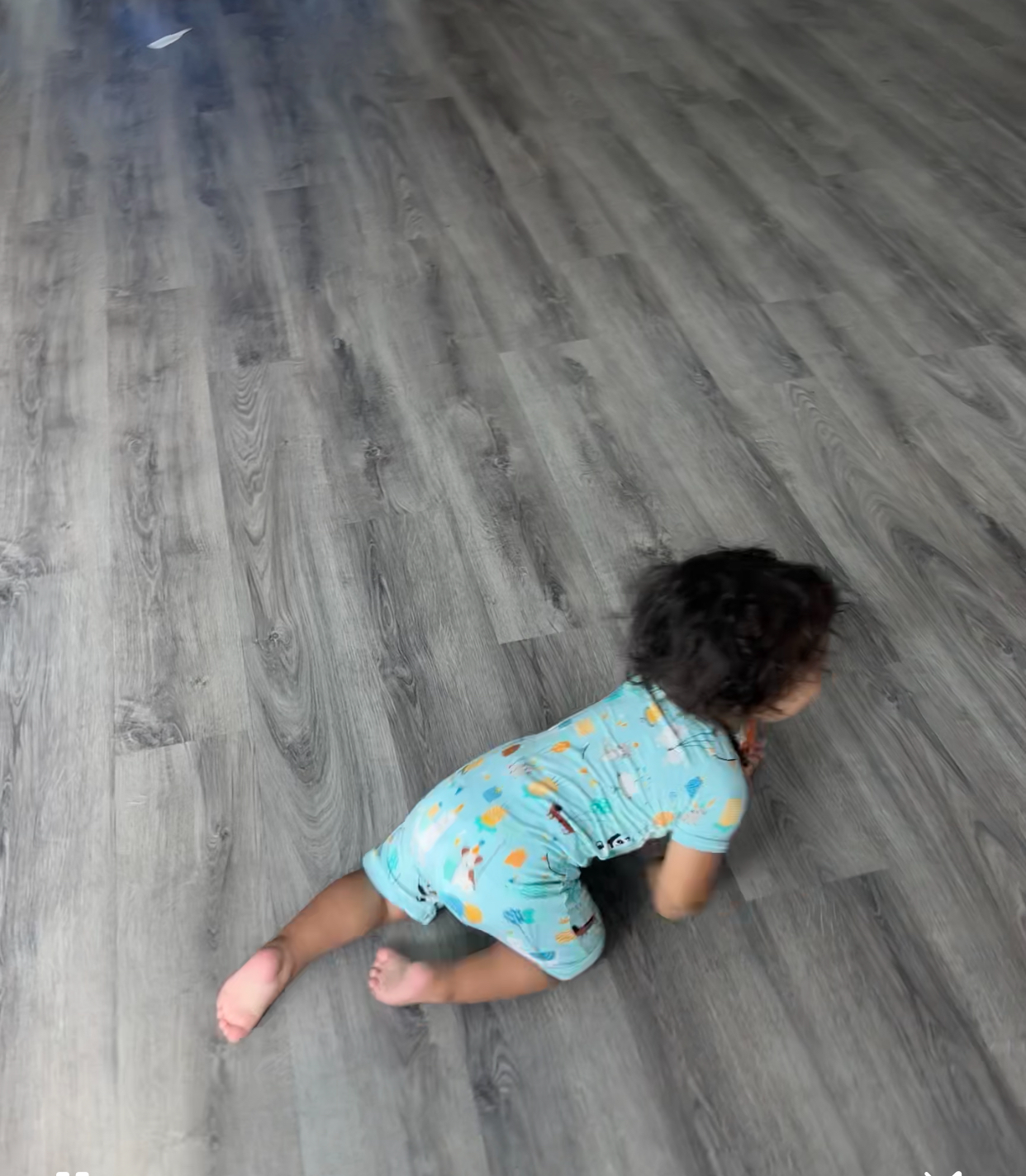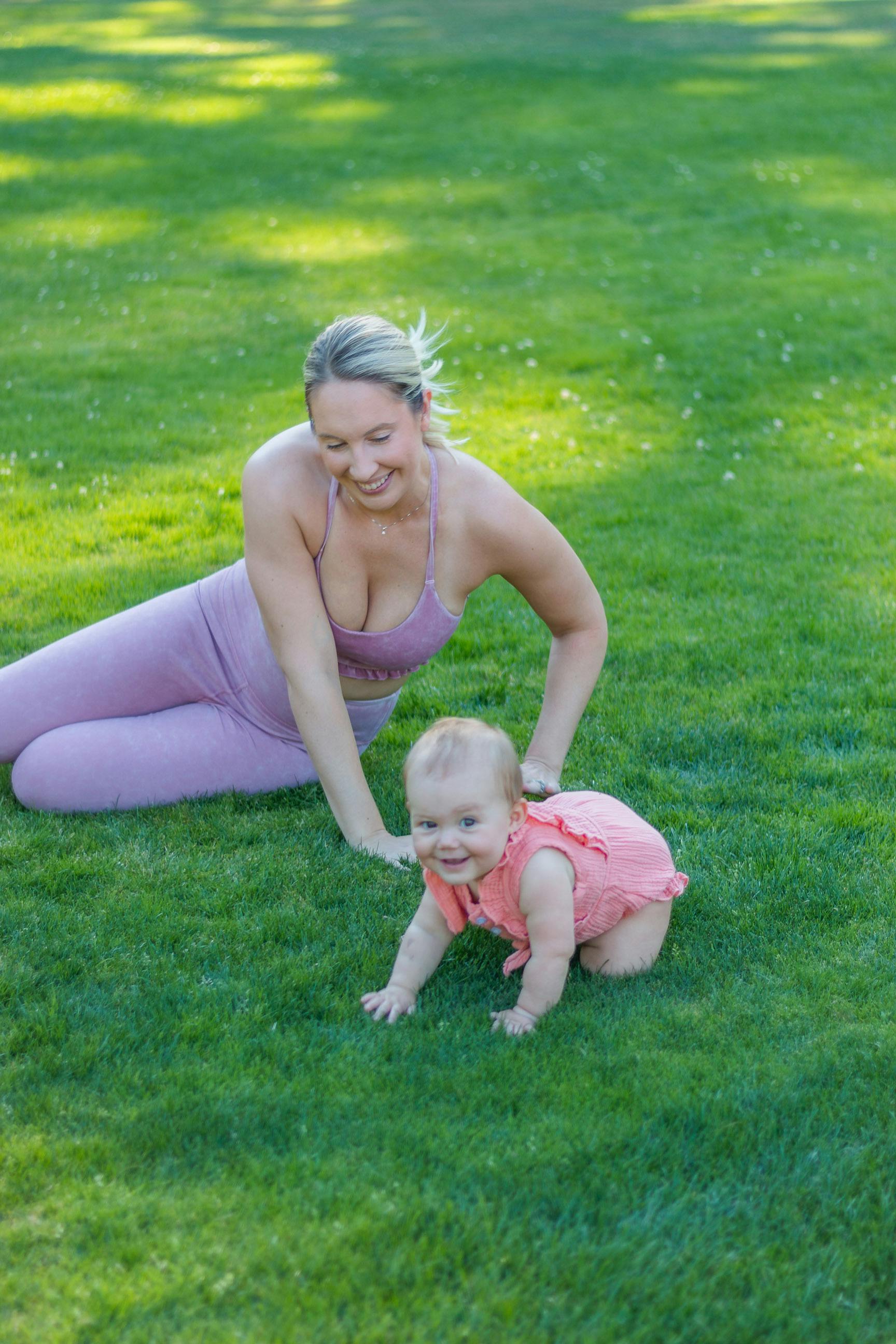A Parent’s Concern: “Is It Okay That My Baby Skipped Crawling?”
When Sarah brought her 10-month-old to our office, she had a question many parents wonder:
“Is it okay that my baby skipped crawling?”
Her little one had gone straight from sitting to pulling up and standing. While proud of how quickly her baby was progressing, Sarah’s mom-gut told her something wasn’t quite right.
She wasn’t wrong to wonder. Crawling isn’t just another box to check on a milestone chart—it’s a powerful, neurological building block for brain and body development. Skipping it can create gaps that may show up later as learning struggles, poor coordination, or difficulty focusing in school.
At Pinnacle Chiropractic, we see families across Bradenton, Sarasota, and Lakewood Ranch every week with similar concerns. Let’s explore why crawling is so much more than “cute” baby movement.
The Confusion Around Milestones
In recent years, the CDC updated milestone guidelines—removing crawling from the “required” list and extending the age ranges for walking and talking. While the goal was to reduce pressure on parents, many families were left confused.
Why Order Still Matters
Developmental science shows that the sequence of milestones is as important as the milestones themselves. Each stage builds on the one before. Crawling isn’t just a bridge between sitting and walking—it’s a critical step in wiring your baby’s nervous system for learning, balance, and focus.
Crawling Builds Brain-Body Superpowers
Crossing the Midline
Crawling requires opposite sides of the body to work together—right arm with left leg, left arm with right leg. This activates the corpus callosum, the “bridge” connecting the two halves of the brain. That connection supports:
- Reading and writing
- Focus and attention
- Emotional regulation
Developing Core Stability
The rocking, shifting, and pushing movements of crawling strengthen the hips, shoulders, and core muscles. This sets the stage for posture, balance, and physical coordination later in life.
Enhancing Visual Tracking
As babies move forward while looking around, they train their eyes to move smoothly together. This skill supports future reading fluency and hand-eye coordination.
What Happens When Crawling Is Skipped?
Babies who skip crawling may walk on time but can face subtle gaps in development, such as:
- Difficulty focusing or sitting still in school
- Balance and coordination struggles with sports or playground play
- Poor posture or stability from underdeveloped core muscles
Why This Doesn’t Mean Your Baby Is Broken
Skipping crawling doesn’t mean your child is doomed. It simply signals their nervous system may need extra support to bridge those gaps and catch up.
Why Some Babies Skip Crawling
Parents often ask, “Why would my baby skip crawling?” Common reasons include:
- Birth trauma or tension: Stress during delivery can make tummy time and crawling uncomfortable.
- Too much baby gear: Swaddles, swings, or bouncers restrict natural movement and reflex integration.
- Nervous system stress: If the nervous system is “stuck” in fight-or-flight, it can interfere with smooth milestone progression.
How Pediatric Chiropractic Care Helps
At Pinnacle Chiropractic, our approach is nervous system-based pediatric care, not just “spinal adjustments.” Our doctors are certified through the ICPA and PXDocs, with extensive training in safe, gentle infant care.
What Makes Our Approach Different
- We measure: INSiGHT scans show us stress patterns, tension, and nervous system imbalance.
- We listen: Every case history begins with your story as a parent.
- We customize: Care is tailored to your child’s unique needs, with gentle adjustments to restore balance and calm.
What Families Notice After Care
- Babies become more comfortable on the floor
- Parents see progress in crawling, sitting, and walking milestones
- Children experience better sleep, calmer moods, and stronger focus as their nervous system finds balance
The Bottom Line for Parents
Crawling is not optional—it’s a cornerstone of brain and body development. If your baby skipped crawling, seems delayed, or struggles with uneven movement, it could be a sign of nervous system stress.
The good news: your child’s nervous system is adaptable. With the right support, they can bridge those gaps and thrive.
Ready to Support Your Baby’s Development?
At Pinnacle Chiropractic, we’ve helped countless families find answers and hope when milestones didn’t look typical. By starting early, you give your baby the best chance for:
- Stronger focus
- Calmer behavior
- Better sleep
- Thriving development
📞 Call us today at (941) 822-8828 or visit www.pinnaclebradenton.com to schedule your baby’s evaluation.
Because milestones matter — and your baby is wired for greatness.










